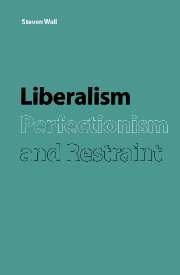Introduction
Published online by Cambridge University Press: 09 November 2009
Summary
Perfectionist conceptions of political morality have made something of a comeback in recent years. Long understood as opposed to liberalism, perfectionism has been depicted as hostile to personal autonomy and antithetical to pluralism. Lately, this depiction has been called into question. A number of political philosophers have attempted to defend a conception of perfectionism that is compatible with liberalism. This book addresses the debate between these liberal perfectionists and their critics. It investigates whether the resurgence of perfectionism is well founded; and, if so, how congruent it is with liberal principles and ideals.
The issues
The main issue between perfectionism and anti-perfectionism centers on which one gives a better account of political morality. But what makes one account better than another?
Two answers suggest themselves. The first one concerns how well an account of political morality explains its subject matter; that is, how well it helps us understand political morality and how well it justifies substantive judgments supported by political morality. We can refer to this as the justificatory force of the account. The second one concerns the substantive judgments about important political issues that the account yields or supports. We can refer to this as the critical potential of the account.
It would be, of course, a mistake to think that the justificatory force and the critical potential of an account of political morality have nothing to do with each other. One reason for thinking that an account has justificatory force is that it yields or supports intuitively correct substantive judgments about important political issues. But while justificatory force and critical potential are clearly related, they remain distinct.
- Type
- Chapter
- Information
- Liberalism, Perfectionism and Restraint , pp. 1 - 6Publisher: Cambridge University PressPrint publication year: 1998



